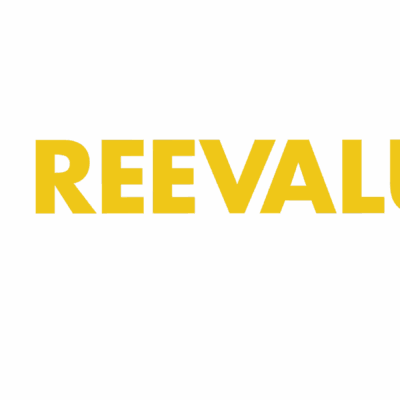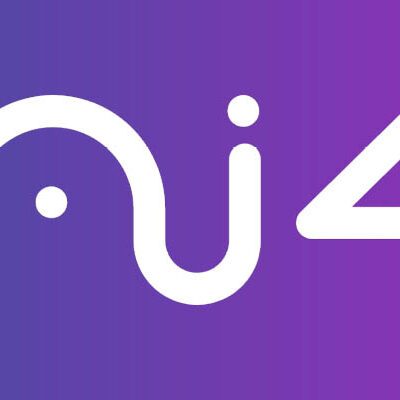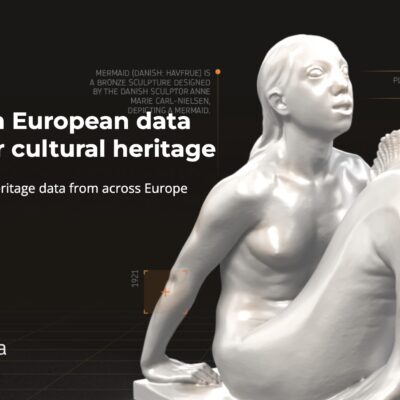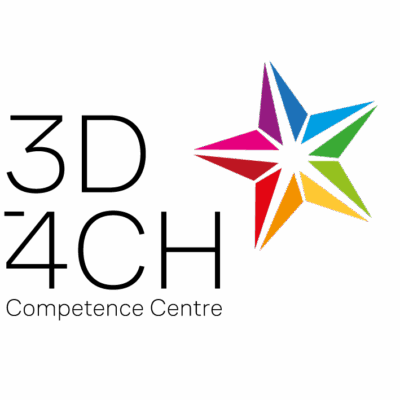
As an initiative of the European Union, and funded under the Connecting Europe Facility (CEF), the Europeana DSI series of projects operate the Europeana Core Service Platform. The service is provided by a consortium of 21 partners, coordinated by the Europeana Foundation. The consortium collaborates with the Europeana Network Association (ENA), a strong and democratic community of 3,000+ experts working in the field of digital heritage, and with the Europeana Aggregators Forum (EAF), consisting of national and pan-European domain and thematic aggregators.
The consortium partners, EAF and ENA work in close collaboration towards the goals set in the Europeana Strategy 2020-2025, with the aim to sustain a strong public service that supports Europe’s cultural heritage sector in its digital transformation. Implementation is supported by the European Commission and the Expert Group on Digital Cultural Heritage and Europeana (DCHE) and its subgroup. The consortium that operates the Europeana DSI creates access, interoperability, visibility and use of European cultural heritage in several markets. The Europeana DSI manages cultural data for use in education, research and creative industries as well as engaging European citizens by providing access to Europeana Collections.
In the Europeana DSI framework, EFHA since 2015 is responsible for running the fashion thematic aggregator for Europeana, collecting and making available more than 1 million digital objects coming from the collections of more than 40 institutions across 14 European countries and working constantly on the improvement of data and metadata quality of the aggregated digital content.
But EFHA didn’t just aggregate digital fashion content. In the DSI project, we have also actively supported fashion GLAMs in opening up their collections and engage with new audiences. In this context, we have set up a direct collaboration with Wikimedia Chapters around Europe, hosting a number of GLAM-WIKI events together with our members. These events have the form of the so-called edit-a-thon. The idea is to invite our member institutions to contribute some of their digital content in open license to Wikimedia and subsequently host a physical event in their premises -or online with the support of the Wikimedia Foundation- in which we invite fashion bloggers, scholars, curators, students, journalists and fashionistas to add new articles or integrate existing ones on Wikipedia, using the digital content provided by our members and the technical support of experienced Wikipedians. Basically, we crowdsource the curation of digital information about our fashion institutions and their collections on Wikipedia.
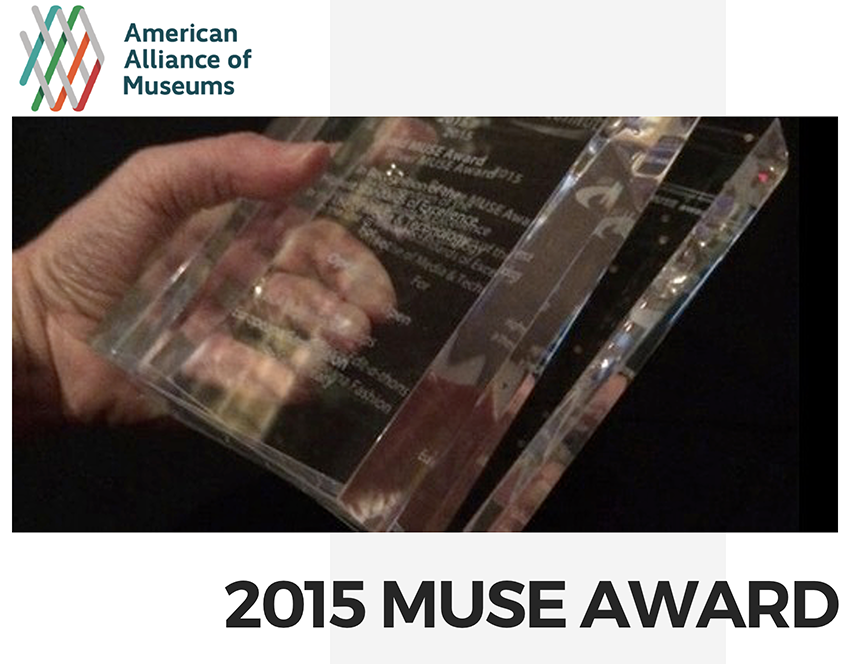 We have organised more than 15 edit-a-thons in 12 countries, adding more than 300 new voices about fashion in Wikipedia and contributing over 2.000 digital objects in open license to Wikimedia that in the past three years generated more than 50 million views. In 2015, the American Alliance of Museums awarded the EFHA series of edit-a-thons with a MUSE award in the “Open” category.
We have organised more than 15 edit-a-thons in 12 countries, adding more than 300 new voices about fashion in Wikipedia and contributing over 2.000 digital objects in open license to Wikimedia that in the past three years generated more than 50 million views. In 2015, the American Alliance of Museums awarded the EFHA series of edit-a-thons with a MUSE award in the “Open” category.
Another important activity that EFHA is carrying out in the scope of the Europeana DSI series of projects is related to supporting the digital transformation in the fashion heritage sector. In the past years, EFHA has organised several events aimed at raising the competency levels and the digital skills of fashion institutions across Europe, stressing the importance of topics like digitisation, metadata standards, audience engagement and new business models.
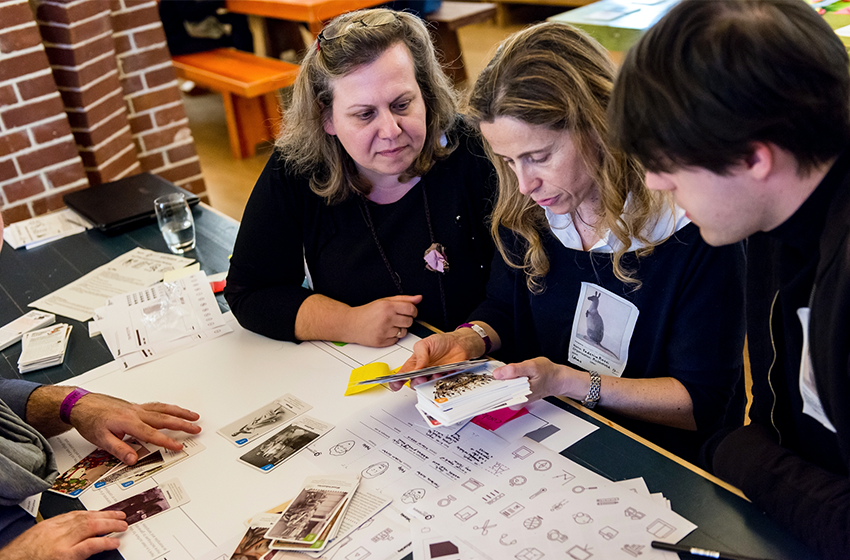 In collaboration with Platoniq and the Europeana Foundation, EFHA has organised a series of co-creation workshops involving fashion GLAMs (Galleries, Libraries, Archives and Museums), scholars, designers, students and developers, with the aim to engage them in designing viable applications, platforms and products for education, tourism and design with a social impact, while reusing digital heritage content.
In collaboration with Platoniq and the Europeana Foundation, EFHA has organised a series of co-creation workshops involving fashion GLAMs (Galleries, Libraries, Archives and Museums), scholars, designers, students and developers, with the aim to engage them in designing viable applications, platforms and products for education, tourism and design with a social impact, while reusing digital heritage content.
EFHA is also organising a yearly international conference that gathers academics, cultural heritage practitioners and creatives in the fashion domain to discuss topics like the curating and exhibition-making, the management and general politics of heritage, open access and cultural appropriation. Some of the past editions of our conference are available on our Vimeo channel.
Project Partners
- Europeana Foundation (NL)
- AIT Angewandte Informationstechnik Forschungsgesellschaft (AT)
- AIT Austrian Institute of Technology (AT)
- Archives Portal Europe Foundation (NL)
- The British Library (UK)
- Connecting Archaeology and Architecture in Europe (IE)
- CLARIN ERIC (NL)
- Digitaal Erfgoed Nederland (NL)
- Deutsches Filminstitut & Filmmuseum e.V. (DE)
- Deutsche Nationalbibliothek (DE)
- European Fashion Heritage Association (IT)
- EUN Partnership AISBL (BE)
- Euroclio European Association of History Educators (NL)
- Facts & Files (DE)
- INESC-ID, Instituto de Engenharia de Sistemas e Computadores - Investigação e Desenvolvimento em Lisboa (PT)
- Michael Culture (BE)
- Stichting Nederlands Instituut voor Beeld en Geluid (NL)
- National Technical University of Athens (GR)
- International Consortium for Photographic Heritage Photoconsortium (IT)
- Instytut Chemii Bioorganicznej Polskiej Akademii Nauk - Poznańskie Centrum Superkomputerowo-Sieciowe (PL)
- Stiftung Preussischer Kulturbesitz (DE)
